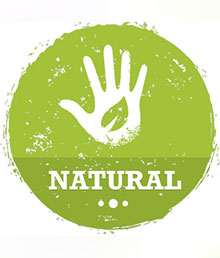February 05, 2016
Q&A: Eco Promotional Items
 Data from ASI’s most recent Ad Impressions Study found that 42% of end-users have a more favorable opinion of the advertiser if the promotional product was eco-friendly. Which begs the question: What is the current state of the eco market? How is client interest faring?
Data from ASI’s most recent Ad Impressions Study found that 42% of end-users have a more favorable opinion of the advertiser if the promotional product was eco-friendly. Which begs the question: What is the current state of the eco market? How is client interest faring?
To find out, we spoke to a pair of experts in the industry. Kriya Stevens is the veteran brand manager for Econscious (asi/51656), one of the leading eco apparel brands in the industry. Michelle Sheldon is the president of Eco Promotional Products, Inc. (asi/185797), a family business that focuses exclusively on its namesake – or, as Sheldon puts it, “is the fiber of our being.” Here’s what they had to say:
Q: How would you characterize the current interest in eco products?
Kriya Stevens, Econscious: We are seeing the number of well-informed, eco-conscious customers steadily increase. Talking and thinking about making sustainable choices are now mainstream. As compared to say, five years ago, the kinds of questions we get asked have changed from “what is organic?” to “what are the benefits of organic farming practices?”
Q: How do the prices for eco products compare to comparable standard items?
Michelle Sheldon, Eco Promotional Products, Inc: In most cases our prices are equivalent, or even better, to other standard promotional products distributors. We are fortunate in that we’ve been in the business for over seven years and have established ourselves with our closely vetted suppliers. We have grown our business and earned better pricing. We leverage this pricing by offering our clients products at more competitive price points. The biggest discrepancy in pricing has always been with apparel. There is still a considerable upcharge for eco clothing. Even so, we tend to sell a ton of clothing because of our relationships.
KS: T-shirts in particular can be dirt cheap but at the expense of quality and hand-feel. When you compare Econscious to better premium brands we stack up nicely. We are still fairly grassroots in our marketing so we invest in the products we make, rather than huge, flashy marketing campaigns. That’s part of how we keep our pricing competitive.
Q: What types of clients are interested in eco products, and are they willing to pay more than for comparable items?
KS: We see customers from every sector of business and a wide variety of fields looking for environmentally responsible products. There are companies that prefer to associate their brand with products that are aligned with their core values. Being seen as good environmental stewards has a halo effect that is often difficult to quantify in dollars and cents. Savvy companies recognize this and act accordingly.
MS: Our client list is narrower than some, however, it is pretty broad given our mission. Our list grows daily. We used to work mostly with government and education. Over the years, this has grown to include entertainment, manufacturing and special events. Now our customer base also includes large corporations down to local libraries and social enterprises. The common thread that binds all our clients is they have made a conscious choice to make better decisions on what they put their brand on.
Q: Data from our Ad Impressions Study finds that younger generations have significantly more interest in eco products. Do you find that to be true?
MS: This is absolutely true when it comes to higher education. Not so true when it comes to our government and corporate clientele, which have a much broader age span.
KS: Younger consumers are perhaps some of the most well-informed for their age group as compared to their predecessors. They don’t have to be sold on the idea of “sustainability” or making environmentally responsible choices, they already get it. In fact, they may be the ones pushing older consumers to look at their lifestyle choices and their impact on the planet.
Q: Are there any upcoming innovations in the category or key messages that are different than before?
KS: Recently, we added hemp blends to our assortment. Hemp is one of the longest, strongest fibers out there. Hemp grows rapidly and has a long root system that is excellent for soil health. The hemp blend fabric we created for use in our hats and bags yields a fabric that has a sumptuous linen-like appearance with the durability of canvas which is ideal for accessories. This year, we added a Soft Mesh Trucker and a Hemp Market Tote to the line. We expect both styles to be hugely popular.
Q: What’s more true: That end-users specifically seek out eco products, or they simply appreciate it as an added benefit of a product they receive?
MS: Our end-users are specifically seeking out our eco products. We are a company of choice in a very competitive space. We deal with a type of client that challenges us and makes us want to do better and know more. Simply stating a product is eco-friendly or putting an icon by a product is not good enough. Our customers want to know more. This is not a space a promotional products company decides to go into one day without knowing what they’re doing. They soon find that they don’t even know what they don’t know.
